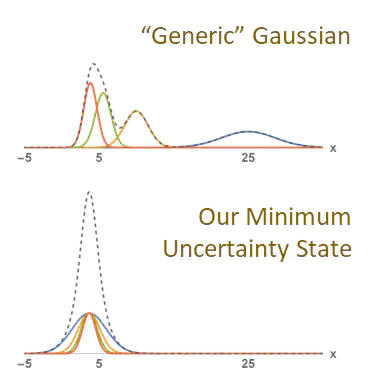Gaussian states don’t propagate semi-classically in spacetime

Abstract
As experimental quantum technologies increase in complexity and precision, the loss of spatial coherence is a problem which will only increase. The same complexity and precision, however, is bringing us closer to exciting tests of fundamental physics. Composite particles such as atoms and molecules are promising tools for these future experiments. However, in all theoretical studies of such particles, modelled as freely-propagating Gaussian wave packets, they delocalise into separate internal mass-energy components, and their spatial coherence is destroyed. Besides calling into question the suitability of composite particles as experimental tools, this behaviour is contrary to even our most naive understanding of atoms and molecules as cohesive entities in the ‘real’ world, where we expect them to have well-localised spacetime trajectories. \
In this work, we identify the optimal way to prepare composite particles to fully avoid the delocalization and related loss of spatial coherence. We find the correct theoretical approach required to discuss limitations on the space-time trajectories of composite quantum particles — it requires a new uncertainty principle which includes mass as an operator. We show that the quantum states which minimise the inequality propagate coherently in spacetime, and transform covariantly under boosts. This result highlights the fundamental differences between phase and configuration space for composite particles, reconciling theory with our naïve view, while the new minimum uncertainty states will find applications in upcoming precision experimental tests.